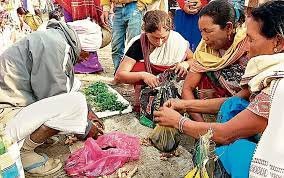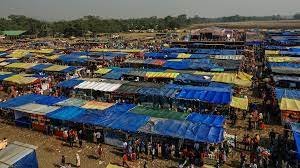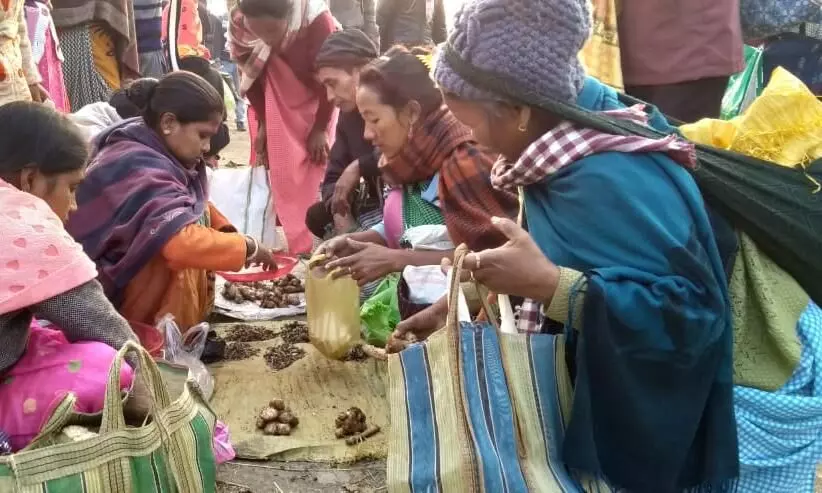JAGIROAD (Assam), Jan 22 (PTI): Cashless transactions have gained currency in recent years but barter existed long before it and is still being used by the Tiwa tribe in their annual trade fair for five centuries.
In the three-day ‘Jonbeel Mela’, which historians date to the 15th century, the age-old barter system prevails instead of the use of money for procuring and selling goods, making it perhaps the only one of its kind in the country.
During the mela, held in a small hamlet about 32 km from here, members of Karbi, Khasi and Jaintia tribes from neighbouring hills, besides the Tiwas come with their products and exchange them, says Jorsing Bordoloi, the secretary of Jonbeel Mela Development Samiti.
Another significant aspect of the fair is its theme of harmony and brotherhood among various tribes and communities. It is celebrated with their traditional dance and music, he said.
The event is held by the Tiwas, a tribe of central Assam and neighbouring Meghalaya, in the third week of January at Morigaon.
The products usually traded in during the fair are food materials like ginger, bamboo shoots, turmeric, pumpkin, dried fish and ‘pithas’ (rice cakes), besides medicinal herbs.
The large water body which is shaped like the crescent moon(Jun) and the wetland (beel) near which the fair is held gives it its name. The fair is declared open ceremonially by Tiwa ‘king’ Deep Sing Deoraja after ‘Agni Puja’ (obeisance to the fire god). The Tiwa ‘king’ is also called Gova Raja as the ancient kingdom of the Tiwas was known as Gova. He attends the community feast along with his ‘courtiers’ and then collects a customary tax from his subjects.
Traditional community fishing is held on the second day of the fair and people from all walks of life participate in it.
Assam Chief Minister Himanta Biswa Sarma, who attended the fair on the second day on Friday, said ”The continuation of this tradition (of barter) for centuries is a manifestation of the Tiwa community’s strong attachment to their cultural heritage”.
The Jonbeel Mela has promoted peace and brotherhood between the people of te hills and plains since the medieval period, he said and announced that 20 bighas of land will be allotted soon by the government for a permanent site Sarma also handed over cheques of Rs 1.25 lakh each to 18 ceremonial kings of the ‘Tiwa kingdom’ as a royal subsistence grant. The Deoraja in his turn thanked the state government for the grants as the economic condition of all the customary kings is s on the decline.
“I have been coming here and taking part in the barter trade since my childhood. This is a very old custom of ours and is the most important event of the mela. We also enjoy the fishing, singing and dancing programmes,” said 60-year-old Raja Bordoloi as he emptied his stock of dried fish in exchange of ginger and medicinal herbs.
A corporate professional Deep Choudhury, who said he visits the fair almost every year except during the pandemic years, said that people have a lot to learn from the barter practice of the Tiwas which exemplify the cashless tenets in modern-day society.
He urged the government to provide more assistance for holding the Jonbeel Mela so that it thrives in the future and tourism receives a boost to benefit the local people.
The erstwhile Congress government in the state, in its bid to promote this unique fair, had announced an ‘Annual Royal Allowance’ for the 19 customary kings from different communities under the erstwhile Gova kingdom that included parts of three districts of Assam — Morigaon, Nagaon and Kamrup.







